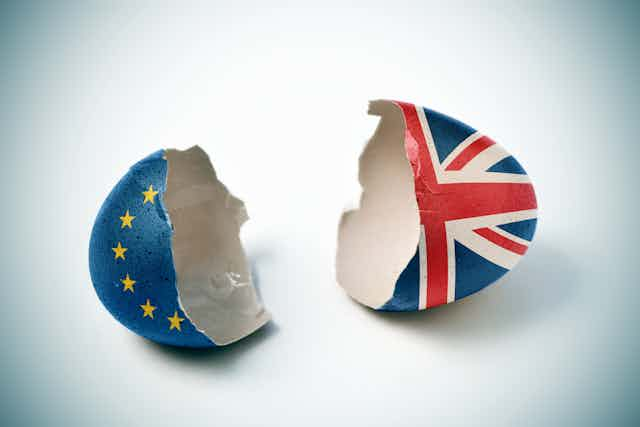Britain’s prime minister, Theresa May, has been keen to reiterate that “Brexit means Brexit”. But, despite her insistence, at least two types of Brexit are being discussed: “hard” and “soft”. They relate to the type of deal that the UK negotiates with the EU. A significant reason for the delay in triggering the Article 50 process of withdrawal is to give the government time to work out what deal it wants and what position to take in its negotiations with the EU over leaving.
The battle lines have been drawn between those in government who want a clean or “hard” exit and those who want to preserve, above all else, membership in the EU’s single market – a “soft” exit. Between these two broad positions there can be a variety of differences, but they lean in one or the other direction.
The case for ‘soft’
The soft Brexit position is predicated on the assumption that leaving the EU’s single market will cause a painful shock to the British economy, both for exporting manufactured goods, as well as financial and banking services. Norway is a member of the single market but not an EU member, and makes financial contributions to the EU budget.
The argument by soft Brexit supporters is that outside of the single market, British goods and services may not be as competitive as they are within it today. This is because within the single market and customs union there are no additional levies on British goods traded with the EU; outside they are subject to World Trade Organisation rules which would allow the EU to place extra costs on British goods.

This argument may also reflect a feeling that the British economy is still in a fragile state after the financial crisis. But the soft option increasingly looks untenable for several reasons. Above all, the EU insists that membership of its single market includes all four freedoms of movement: capital, goods, services and people.
Politically, it is highly unlikely that the UK’s Conservative government is going to continue to allow the free movement of people from other EU member states into the UK, especially after immigration was highlighted as a red line for many in the Conservative Party – including members, voters and many MPs.
Plus, a soft Brexit would undermine the Leave campaign promise to “take back control” of law-making from Brussels, as the UK would still remain subject to regulations and other legislation concerning single market issues, but without any formal say in the decision making (the Norway situation). This would be a step backwards in terms of parliamentary sovereignty.
Finally, the European Court of Justice would still preside over jurisprudence that affected UK legislation, another step away from Leave promises.
Hard Brexit
Those advocating a hard Brexit argue that the UK has a glorious future completely shorn of any links with the EU. Prominent in this camp are the Leave campaigners that are now government ministers with a role in the Brexit negotiations, such as the new international trade secretary, Liam Fox. He hailed Brexit as an opportunity for Britain to become an independent member of the WTO.

If the UK leaves its membership of the EU single market, the alternative would probably be a trading relationship based on WTO rules. These allow for a degree of tariff restrictions, and then later some type of free trade agreement between the UK and EU (the new Canada-EU trade agreement is held up as a model). Hard Brexit supporters argue that the single market with its attendant responsibilities is too high a price to pay for access. Besides, for such supporters, the free movement of people is a political non-starter.
To a certain extent, the soft and hard Brexit perspectives reflect differences in opinion over how resilient the British economy will be outside of the EU’s single market. Soft Brexit is based on a pessimistic view of how well it will fare and how reliant it is on financial services. Comments by multinational corporations that a hard Brexit may cause them to curb their future investment in the UK is proof enough for soft Brexiteers that the risks of leaving the single market are too high.
The hard Brexiteers are more optimistic. They believe that after a short-term wobble, the UK economy – the fifth largest in the world they quickly point out – will establish a new and competitive position in global trade. Politically, at least, the pendulum appears to be swinging towards the hard side.

